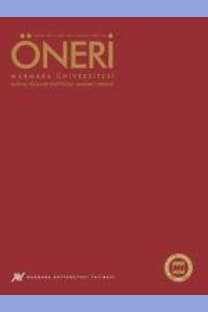RESEARCH DEGREE EXAMINING - COMMON PRINCIPLES AND DIVERGENT PRACTICES
Araştırma, Araştırma Derecesi, Araştırma Derecesi Sınavı
RESEARCH DEGREE EXAMINING - COMMON PRINCIPLES AND DIVERGENT PRACTICES
RESEARCH, RESEARCH DEGREE, RESEARCH DEGREE EXAMINING,
___
- CVCP (1993) Handbook for Extemal Examiners in Higher Education Sheffield: UK Universities Staff Development Unit.
- Hartley, J. and Jory, S. (in press) Lifting the veil on the viva: the experiences of psychology PhD candidates in the UK. Paper submitted for publication (copies ffom the authors - Keele University).
- Hoddell, S. (1999) Professional Doctorates in the UK, unpublished paper (UKCGE)
- Povvell, S.D. (1999) A Svvedish Disputation: Reflections on PhD Examination. UK Council for Graduate Education, Nevvsletter.
- QAA (1999) QAA Code of Practice for the Assurance of Academic Quality and Standards in Higher Education: Postgraduate Research Programmes.
- QAA (2001) The Framevvork for higher education qualifications in England, Wales and Northern Ireland,
- Shaw, M. and Green, H. (1996) Standards in research awards: length, weight or quality? Developing an approach for resolving the dilemma. Innovation & Leaming in Education: The International Journal for the Reflective Practitioner, 2, 3, pp 4-10.
- UCoSDA/BPS (1995) Guidelines for the Assessment of the PhD in Psychology and related Disciplines. Sheffield: Universities’ and Colleges’ Staff Development Agency.
- ISSN: 1300-0845
- Yayın Aralığı: Yılda 2 Sayı
- Başlangıç: 1994
- Yayıncı: Marmara Üniversitesi
BALANCED SCORECARD ve STRATEJİK ODAKLI KURUM
RESEARCH DEGREE EXAMINING - COMMON PRINCIPLES AND DIVERGENT PRACTICES
S.d. POWELL, H. GREEN, C. MCCAULEY, M. SHAW
RE-THINKING THE POSTGRATUATE EDUCATION: THE CASE OF THE UNIVERSITY OF AVEIRO (PORTUGAL)
Nilza COSTA, Isabel ALARCÂO, Jorge FRADE
Genel Kabul Görmüş Muhasebe İlkelerine Göre, ERTELENMİŞ VERGİLERİN FİNANSAL TABLOLARDA RAPORL ANMASI
DOĞAL BOYAMACILIKTA KULLANILAN BOYARMADDE KAYNAKLARI ve MORDAN MADDELERİNİN BOYAMAYA ETKİSİ
KÜRESELLEŞME VE İNSAN KAYNAKLARI YÖNETİMİ
ADVANTAGES AND DISADVANTAGES OF SOJOURNS AT FOREIGN UNIVERSITIES IN THE RESEARCH TRAINING PERIOD
KOBİ'LERİN EĞİTİM ve DANIŞMANLIK HİZMETLERİNDEN YARARLANMA EĞİLİMLERİ ÜZERİNE BİR ARAŞTIRMA
